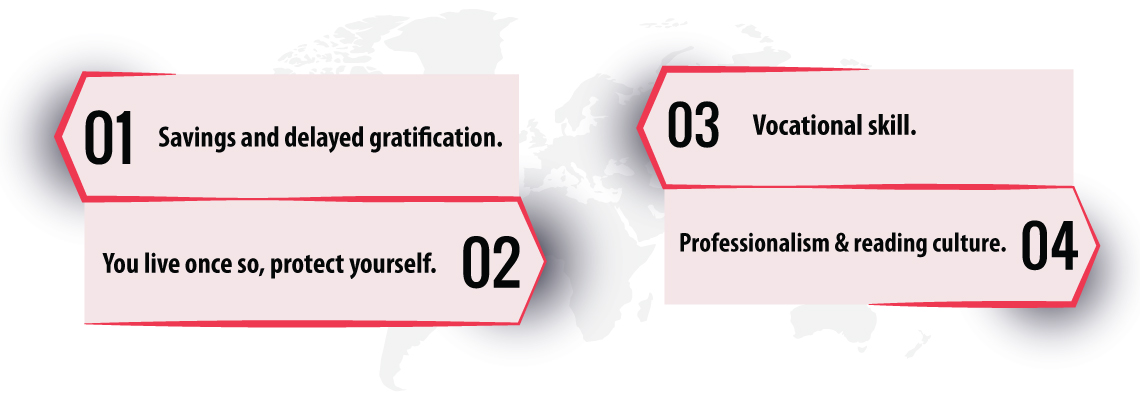Life lessons to teach your children this holiday season.

Life lessons to teach your children this holiday season.
December 10, 2020 0 comment
Many parents/guardians will do everything to protect their children from any harm. Yet, some parents invest very little in preparing their children for both the soft and turbulent world ahead.
Recommended article: Still paying your children’s school fees? No need to hustle.
In most cases, when parents are wealthy, they tend to “spoil” their children by indulging their every desire that money can buy. This creates a sense of entitlement in children.
Africa’s future labour force, therefore, must be prepared early in life to face a world full of ups and downs.
As Christmas and new year’s holidays draw nearer, we believe you will have quality time to spend with your precious ones. Grab the chance to teach these lessons they’ll need for the lives you wish for them.
Teach them about savings and delayed gratification
Part of the reasons why Africa is underdeveloped is because of its low savings culture. Many employees save almost nothing in their entire lifetime. And as a result, they sink into poverty when they retire from their jobs.
But individuals and countries, according to the World Bank, only get rich through savings and investment.
“As a rule of thumb those who save more become wealthier because foregoing consumption today allows one to invest in the future,” reads part of the World Bank report.
Teach this to your children at a tender age. That is the only way to develop financially. Children should learn to delay gratification now for a better reward in the future.
You live once so, protect yourself.
Parents and guardians have a critical role to play in raising a skilled child who can make productive life choices and have self-control from external pressure.
The choices we make at every stage of our lives determine how our future will be. Those choices can be about money, relationships, lifestyle, or career path. Help your children know that every decision made, or not made, has consequences.
According to the Family Education blog, teaching your child how to protect his/her life is the key to helping them appreciate why life is essential.
Teach them a vocational skill
Parents make a lot of sacrifices for their children to attain academic degrees than acquiring hands-on skills whose employment odds are higher. A degree is essential, but even better when paired with a vocational skill.
What COVDI-19 has taught us is that white-collar jobs can be lost at any time. For instance, millions of African youth in the hospitality industry are now unemployed because of COVID-19 disruptions.
Recommended article: The education that Africa needs
However, those who had extra vocational skills have been able to earn a living from making face masks, providing hairdressing services, operating as car mechanics, or undertaking handyman jobs which are always in demand.
Because we cannot predict tomorrow very accurately, having a vocational skill is critically important.
What you need to do is to change your perception about vocational skills and emulate what Professor Eli Katunguka, vice-chancellor of Kyambogo University in Kampala, Uganda commented on.
“What is the problem if I am a veterinary professor, and I’m still able to fix my car when it breaks down?” he asks.
“For a long-time vocational education has been branded as “for failures”… students who could not make it in class. This is changing the narrative,” said Katunguka.
Inculcate professionalism and reading culture
Many SME employers have complained about the poor work ethics of the labour force. Corruption, low levels of creativity and productivity, and lack of excellence characterise our labour force.
Because of a very poor reading culture, the African labour force misses out on knowledge and creativity hidden in-between the covers of books.
The next generation of workers and entrepreneurs should be groomed to be better than the current generation concerning ethical conduct and reading culture. It starts with you and me, teaching and showing the next generation what is right and wrong.
It is our responsibility to nurture a labour force that will have the right attitude, communicate better, and creatively solve Africa’s problems. We should begin this journey with our children.







